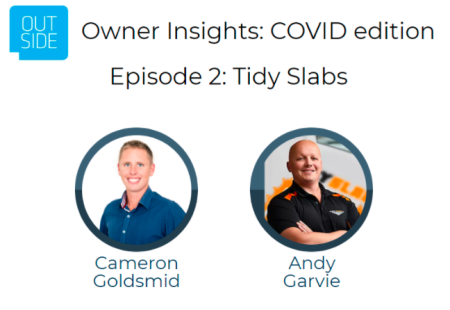Expert accounting advice for Property Developers
_
At Outside Accounting, we will guide and support you to manage the financial department of your property development

Accounting services for property developers
Bookkeeping
Accounting and Tax
Business Advisory
Payroll
Get a Complimentary Consultation
Fill up the form below and our team will contact you shortly!
Property Accountants: NZ Property Investment Deposit
If you’re already on the housing ladder, you can start investing in real estate by taking advantage of the value of your family home, or if you’re a first-time buyer, you can start by being a “rentvestor.”
Speak to a professional
Prepare your deposit.
You will require a down payment of at least 40% if you wish to purchase an investment property. When you purchase a home to live in, you must meet a separate set of requirements (owner- occupied).
If you already own an owner-occupied home, there are specific situations where you may be required to have a greater deposit when buying an investment property. To learn more, chat to one of our home loan consultants.
using the equity in your property as a down payment
You might be able to use part of the equity you’ve accrued in your current residence as a down payment on an investment property if you already own it. The equity in your home is the sum of the current value minus the balance owed on it. You have $300,000 in equity, for instance, if your home is worth $500,000 and you owe $200,000 on your mortgage. As you pay off your mortgage or if the value of your home increases, you increase your equity.
Your bank will often require that you leave at least 20% of the value of your home in equity, so you can’t utilise all of it. However, depending on your situation, you might be able to use some of it as a down payment for an investment property.
Along with your income and the prospective rental income of the investment property, the bank will also evaluate other factors. To discuss your options, speak with one of our experts on home loans.
For beginners, “rentvesting”
Recent significant increases in housing costs have forced many prospective buyers out of their desired suburbs. Some purchasers prefer to enter the real estate market as rentvestors rather than purchasing a home that requires a long drive to get to work, friends, and family. When you own a home in an area where you can afford it, you rent it out rather than residing in it.
You can only use KiwiSaver funds to acquire a residence for your own use, not an investment property, so if you’re a first-time buyer intending to use them to finance the purchase of an investment property, you’ll be disappointed.
Plan your approach.
The majority of investors focus on either financial gains or rental return when they first enter the real estate market.
When you sell a piece of property for more money than you paid for it, you generate a capital gain.
Rental yield is the potential annual rent that a property could bring in as a share of its market value. Calculating your gross rental yield is as simple as dividing your rental income by the property value and multiplying the result by 100.
Look at the QV website, which provides a table of rental analysis where you can search median rentals, annual rent fluctuations, and gross rental yields for different suburbs around the nation, to determine how different places compare.
Test of the light line
It would be wise to consult a tax specialist about the tax implications if you plan to flip a home (purchase to refurbish and then sell at a profit) rather than rent it out.
A few years back, the government implemented a “bright-line test” in an effort to cool down the real estate market and prevent prices from growing too quickly. If you acquire and sell a property within a specific time frame, this test decides whether you must pay tax on gains.
If you purchased between 1 October 2015 and 28 March 2018, the bright-line test applies if you sell your investment property within two years. If you purchased on or after March 29, 2018, it applies if you sell your investment property within five years.
You can determine if the bright-line test applies to your circumstances by consulting a tax specialist.
Set up a limited approval.
Pre-approval, also known as conditional approval, will help you estimate how much money you qualify for. As a result, you can concentrate on finding homes within your price range and move fast to submit an offer when you locate a home you like.
Given that you’ve already completed the house loan application form, having conditional approval expedites gaining full approval. We might need some further information from you, like a property value or rental appraisal, in order to receive final permission. You will be made fully aware of all the requirements by your home loan specialist.
View additional information about conditional approval
Receive sound guidance.
Investing in a home is a big deal, so it helps to have experts on your team to guide you through the process.
A property manager can take care of your rental if you don’t want to be a hands-on landlord, a lawyer will ensure that your offer is written in a way that protects you, an accountant will help you structure your finances correctly, a tax expert will explain any tax obligations to you, and a home loans specialist will help you structure your loan or walk you through saving a deposit.
The search for a home
Once you’ve finished all the preparations, it’s time to tour open houses.
Think rationally, not emotionally, when searching for an investment property. Think about items like:
Is there a location that is convenient to shopping, restaurants, cafes, and public transportation?
Condition: Has it been well cared for or will extensive work be required? Does it meet the heating, insulation, and ventilation requirements for a healthy home set forth by the government?
How much rent is it likely to be able to bring in? Has it previously been rented? If so, can you check the rent it commanded and the occupancy rate?
You can acquire a general notion of a property‘s value on websites like homes.co.nz, realestate.co.nz, Trade Me property insights, or QV.co.nz when you see one you like.
Before placing an offer on a home that you like and that appears to be in your price range, consult with a lawyer to ensure that it includes terms and conditions that will allow you to conduct all the necessary checks, finalise your finances, and make all the necessary checks.
Your contract will become unconditional and you will formally become a real estate investor after you are satisfied that all of the terms of your offer have been satisfied and all of the i’s and t’s have been crossed.
See what your possible payback amounts are and how quickly you may pay off your loan by using our mortgage calculators.
Check out our mortgage calculators.
Begin your real estate investment journey.
To assist you with the process of purchasing an investment property, we have experts in home lending.
Speak to a professional
Our mortgage experts can explain the steps involved in purchasing an investment property and go over your options with you.
Find a professional
Use our investing calculator for real estate.
To see how much you might be able to borrow to buy an investment property, use our calculator to evaluate various interest rates and repayment options.
Count right now.
Information for landlords
For you, your rental property is a significant asset, but it serves as a residence for your tenants. As a result, if you become a landlord, be careful to fulfil your duties.
The laws and ordinances that apply to rental properties are listed under Tenancy Services.
See the heating, insulation, and ventilation specifications for rental units for information on healthy housing standards.
Privacy advice: what data you can and cannot gather while choosing tenants.
Investing in property | Home loans
When buying investment properties you will need a 40% deposit. This may differ from what you need to meet the requirements for the purchase of an apartment. Some situations require a larger deposit to purchase a house for investment and you’ll require a consultation from the home loan company.
Instant Equity: Making money when you buy
When you trade in lager properties, it’s essential to add value to a purchase. Using a value adding tool you gain instant equity within three to six months if your investment is correct. Investing in stocks will decrease unless markets fall, and profits go up. You also make a bit of profit, so you get paid for it. In a case like this you can make $600,000 equity on a home for $400,000 after revaluing the value to $400,000.
Drawbacks Of The ‘Buy And Hold’ Property Investment Strategy
The biggest disadvantage to following ‘buy and hold’ is not immediately getting the money. If you remodel your house, you can increase your investment by $50,000. You might feel like Sir Bob Jones, the biggest NZ investor. However equity can be restricted in properties. Yes, the properties have increased value but this does not mean that you can go and invest. Whereas with the ‘Buy and Flip’ method, the sale of a property after the repairs are completed means there is more money to use. Using these profits to help pay down personal income costs is a possible option.
Do you need 20% deposit for investment property?
Do you need 40% deposit for investment property?
What is the 2% rule for investment property?
Can I put 15% down on an investment property?
Is property a good investment in New Zealand?
What is the minimum deposit for an investment property NZ?
How do I start investing in property NZ?
What type of property is best for investment?
How to invest in property NZ?
How do I become a property investor NZ?
Is it worth being a property investor?
Is real estate a good investment in New Zealand?
How do I start investing in real estate NZ?
What is the 2% rule in real estate?
What is the 1% rule in real estate investing?
Is New Zealand good for property investment?
How much do you need for an investment property NZ?
How much do you have to put down on an investment property NZ?
Do you need 20% for an investment property?
Is it a good time to buy an investment property in NZ?
Is investing in real estate worth it now?
What are the 5 advantages of real estate investing?
How to invest in real estate NZ?
What is the best strategy to invest in real estate?
What is the meaning of investment property?
What are examples of investment property?
What is investment property NZ?
Meet the Outside Team!
- Property development advice
- Tax structure
- Capital Gains Tax
- GST
- Due diligence
- Ongoing accounting services

Food Envy
With over 20 years experience in kitchens, Taz took the leap and set up Food Envy in 2012 – a way to share his love of good food and hospitality.

Tidy Slabs
Addressing the challenges of the industry is the hardest part of a build but Tidy Slabs believe that foundation work can be simple – with a well-defined process, and a high standard that’s maintained every time.
Client
Reviews
